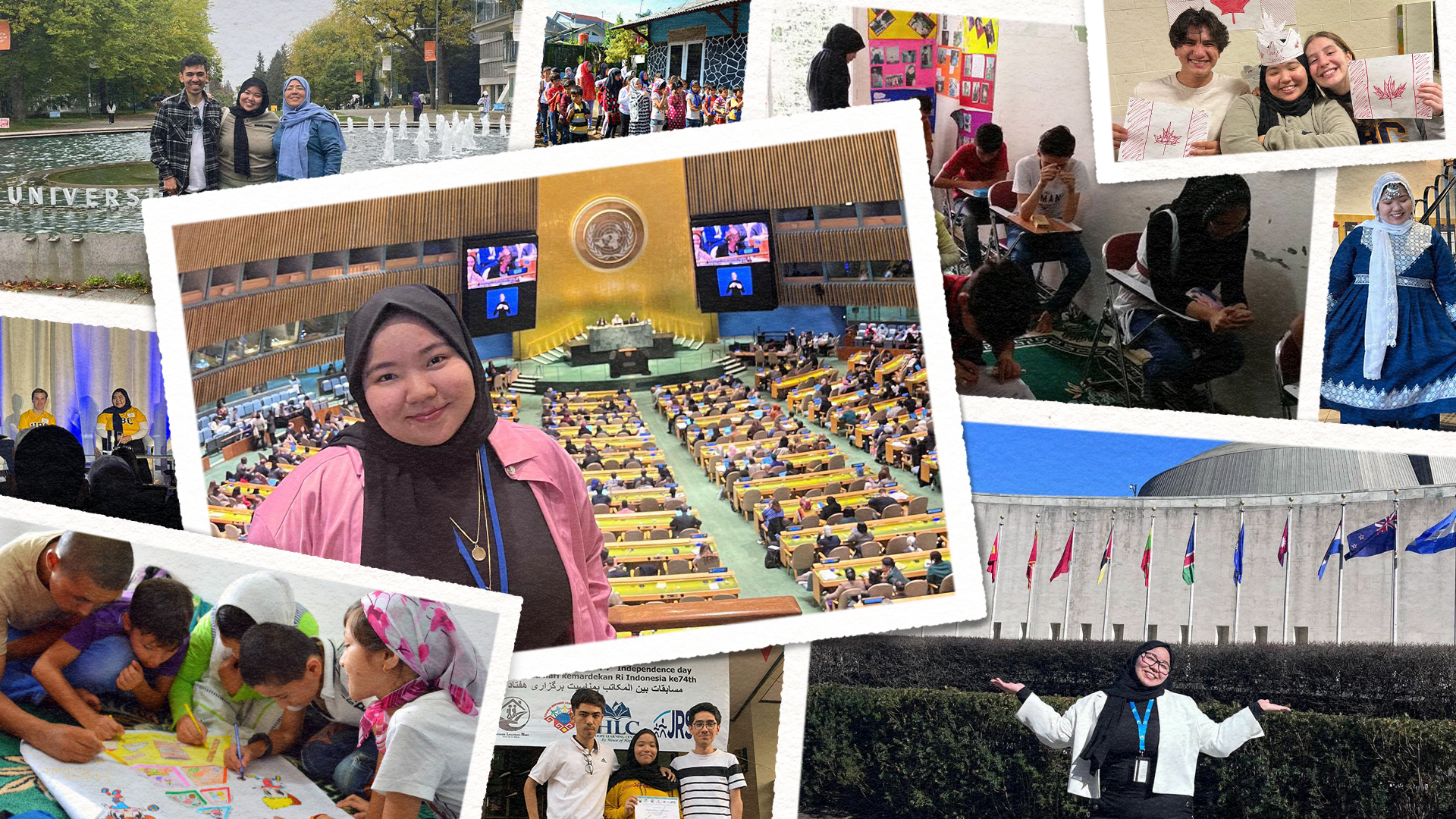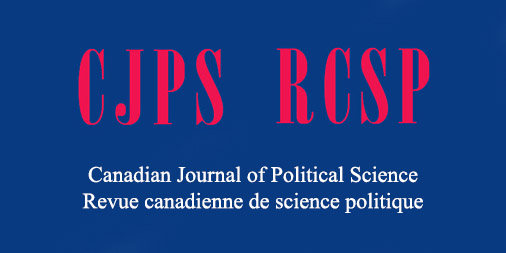We spoke with Eric Merkley (PhD UBC) and Associate Professor Fred Cutler about their recently published article in the Journal of Politics, “Having Their Say: Authority, Voice, and Satisfaction with Democracy“, co-authored with Paul Quirk (UBC) and Benjamin Nyblade (UCLA).
Article:
Eric Merkley, Fred Cutler, Paul J. Quirk, and Benjamin Nyblade, “Having Their Say: Authority, Voice, and Satisfaction with Democracy,” The Journal of Politics 0:0, https://doi.org/10.1086/702947
Abstract:
As studies using macrolevel evidence have shown, citizens are more satisfied with democracy when they feel that their instrumental preferences are represented in government, and this feeling is more likely in nonmajoritarian institutional contexts. Scholars have given less attention to whether such institutions also increase satisfaction by providing more inclusive political discourse. Citizens may value having their voice represented in politics, regardless of the resulting authority. This article presents the first microlevel evidence of this mechanism by having subjects experience a simulated election campaign that manipulates both the political discourse and the outcome independently. We find that subjects were less satisfied with democracy when their party lost the election, but this effect disappeared when the campaign discourse featured thorough discussion of an issue that they felt was important. The findings suggest that institutions and party systems that provide more diverse voices may soften the blow of losing elections.
In your co-authored JOP article, your group presents the first micro-level evidence of the mechanism that citizens may value having their voice represented in politics, regardless of the resulting authority. Please tell us more about this, and why institutions and party systems that provide more diverse voices may soften the blow of losing elections for citizens.
There has been a wide range of literature showing that citizens in non-majoritarian electoral systems governed by forms of proportional representation are more satisfied with democracy than those in majoritarian systems like Canada’s. But we do not fully understand why this is the case. Most individual-level research on this question has established the existence of a winner-loser gap – citizens value winning elections or “authority.” And this makes a lot of sense. Citizens want to have their policy preferences reflected in government. Nonmajoritarian institutions like proportional electoral systems may help narrow this gap by bringing policy closer to the preferences of a larger number of citizens.
We argue in this article that citizens don’t just care about policy or “authority”, but also about having their say. We believe citizens value hearing their “voice” echoed in political discourse, and this may matter particularly for those who lose elections and have no expectation that their voice will be reflected in government decisions. To the extent that some laws or institutions provide for more voices and perspectives to be aired in political discourse, they should help close the winner-loser gap regardless of whether policy is closer to a larger number of citizens as a result. We think electoral systems do this. Systems that are more proportional will feature a greater number of single-issue and niche parties that credibly reflect and vocalize the preferences of a larger number of voters. But we believe other institutions have implications for voice as well.
Why is it critical that we better understand how citizens feel about how the democracy they are part of?
We are living in a time where liberal democracies are under tremendous and growing pressure. Some of this is tied to dissatisfaction with democratic systems as currently constituted. We need to have a better understanding about what it is exactly that citizens value about their democracies before we can engage with solutions to this problem. Just saying that winners are more satisfied than losers doesn’t really get us very far. We need to find ways to close that gap. Reforming electoral systems may be part of the answer, but our findings suggest that we should also concern ourselves with other laws and institutions that have implications for the quality, range, and inclusiveness of political discourse in democracies.
What motivated your group to research citizens’ satisfaction with democracy?
The seeds of this project were in a very large Multiple Collaborative Research Initiative funded by the Social Sciences and Humanities Research Council of Canada. The project was called “Making Electoral Democracy Work”. It brought together over 20 researchers from around the world to study electoral and party systems with surveys, media and party analysis, and experiments. Our UBC part of this team decided to conduct experiments using simulated election campaigns that were as realistic as possible. Because a “satisfaction with democracy in your country” question is almost always asked in real-world election surveys, we asked it in this simulated election campaign. It was one of the many possible outcome variables we intended to study but it struck us as ultimately the most democratic measure of the quality of democracy, so we focused much of our work on it.
Why did your group select an experimental research design? Please tell us more about it.
We were not aware of any cross-national datasets that evaluate political discourse quality and inclusiveness. And observable individual-level data that measure perceptions of political “voice” – whether one gets heard – are likely to be heavily contaminated by factors that are unrelated to how inclusive political discourse is in a given country.
As a result we decided we could best evaluate the effect of discourse on democratic satisfaction by manipulating that discourse in the context of a simulated election campaign. We deliberately chose two samples of respondents who we believed were likely to care strongly about the environment – students and members of the Sierra Club of Canada. We then exposed them to a simulated election campaign featuring purposely designed mock newspaper articles about an election in Manitoba. Some respondents encountered a campaign that featured the environment as an issue, and others did not. They got to vote in this simulated election and they were informed of the randomly assigned result afterward. As a result some respondents lost and others won the simulated campaign. We expected there to be a winner-loser gap in reported satisfaction with democracy and that this gap would be smaller when the environment was robustly covered in the simulated campaign. This is exactly what we found.
Tell us more about your argument that other institutions – beyond electoral systems – may impact the inclusiveness of political discourse and satisfaction with democracy.
The starting point of our research was to shed light on why citizens in countries with nonmajoritarian institutions are more satisfied with democracy. To the extent that countries with such institutions feature richer and more inclusive political discourse by providing more space for issue-specific and niche parties, we would expect higher levels of citizen satisfaction with democracy as a result. But there are institutions and laws other than electoral systems that can shape the inclusiveness of political discourse in a polity such as campaign finance laws, party nomination rules, media subsidies and regulation, and reforms that facilitate the election of women, minorities, and regional parties or candidates.
In fact, we find no evidence in our experiment that subjects responded differently in their reported satisfaction with democracy when the Green Party represented the environmentalist “voice” compared to when it was represented by an interest group. What mattered was that they simply saw their voice credibly articulated in discourse. We think our findings show that we need not focus solely on electoral systems. There may be other ways we can improve our political discourse to make it richer and more inclusive.
Eric Merkley (PhD UBC) specializes in political communication, public opinion, and American and Canadian politics. He is interested in how elite behaviour and the mass media shape economic evaluations and policy attitudes. He has work featured or forthcoming in Science Communication, American Politics Research, Parliamentary Affairs, and the International Journal of Public Opinion Research.
Fred Cutler (Ph.D. Michigan) researches public opinion, elections, federalism, and political psychology. He has published in POQ, JOP, BJPolS, CJPS, Publius, Political Geography, Electoral Studies, and has chapters in various edited volumes. Cutler was one of four investigators on the Canadian Election Study 2011 and 2015, the flagship academic survey on Canadian public opinion and voting behaviour.
Paul J. Quirk (PhD Harvard) is Phil Lind Chair in U.S. Politics and Representation at the University of British Columbia. He has written on a wide range of topics in American politics, including Congress, the presidency, presidential elections, public opinion, regulatory politics, and public policymaking. He has published in the American Political Science Review, the American Journal of Political Science, and the Journal of Politics, and served on the editorial boards of several major journals.


